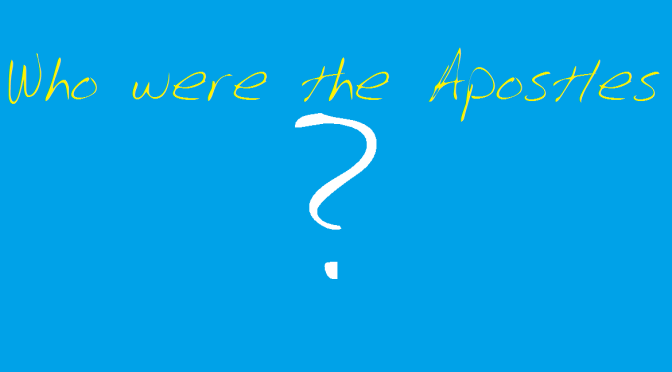
Paul’s First Missionary Journey
The Conflict with Elymas
Leaving Antioch, they went to Seleucia, a seaport town just southwest of Antioch, where they boarded a ship heading to Cyprus. They landed on the eastern edge of the island of Cyprus, and worked their way westward across the island, preaching in the synagogues along the way.1
Once they got to Paphos, a city on the western coast of the island, their preaching attracted the attention of the proconsul of the island,2 whose name was Sergio Paul.3 He called Saul and Barnabas to meet him, because he wanted to hear the word of God. However, there was another man who was with Sergio Paul, and who apparently held some measure of influence with him (or at least thought he did). This man, Elymas, called himself Bar-Jesus (which means “son of Jesus”), but was a Jewish sorcerer and false prophet.4 When they began to preach the word to Sergio Paul, Elymas spoke against them—attempting to negate their message and imply that they were the false prophets, because he did not want the proconsul to obey the gospel.5
Saul (who from this point onward is known as “Paul”) stared him down,6 and by inspiration, called down a curse on him:
O [you are] full of all subtlety and mischief. You son of the devil! You enemy of all righteousness! Will you never cease perverting the straight ways of the Lord? And now, behold, the hand of the Lord is on you, and you shall be blind, not seeing the sun for a time.7
The first recorded miracle of Paul, a former opponent of Christianity who was blinded by God, was blinding another opponent of Christianity. Immediately after Paul spoke those words, Elymas became blind, and walked around searching for someone to guide him. This miracle had the desired effect: showing who the true spokesperson for God actually was. After seeing the miracle, Sergio Paul believed, and was struck with amazement at the teaching about Jesus. There can be no doubt that the proconsul obeyed the gospel.8
When they left Cyprus, they sailed northwest to Perga, a seaport city in Pamphylia. It was while there that John Mark left them and returned to Jerusalem (most likely by sea). We aren’t told why Mark left them, but it left Paul with a not-too-high regard for his trustworthiness. Most likely, Paul preached in the city of Perga9 before they traveled to Antioch of Pisidia10 (not to be confused with Antioch of Syria, where Paul and Barnabas had worked together as prophets).
-Bradley S. Cobb
1 Acts 13:4-5. It is possible that there were multiple synagogues in Salamis, the first city that they came to, but it is also certain that they would have preached as often as possible as they traveled through the island.
2 Luke was the target of many skeptics and atheists for this statement, because Cyprus didn’t have a proconsul; at least, that’s what they thought. Archaeological discoveries have since shown that Augustus Caesar changed their governmental setup, and inscriptions from AD 51-52 have been unearthed which mention the proconsul of Cyprus named Paulus. See Vincent’s Word Studies on Acts 13:7 for more information.
3 Acts 13:7. The Greek in this verse is Σεργίῳ Παύλῳ, that is, Sergio Paulo. Without exception, every translation renders it “Sergius Paulus,” even though the second word is translated “Paul” the other 154 times it appears in the Bible.
4 Acts 13:6-8. Elymas fought against the truth of Jesus Christ as taught by Barnabas and Saul, yet called himself “son of Jesus,” which he may have done in an attempt to gather followers after himself, as though he was the heir to Jesus’ mantle. He was a Jew, and his rejection of the truth leads us to conclude that he would have embraced the Law of Moses—which also condemns him because of his involvement in sorcery (Deuteronomy 18:10), and his being a false prophet (Deuteronomy 18:20). See also Malachi 3:10.
5 Acts 13:8.
6 Acts 13:9. The phrase “set his eyes” (KJV) on him is atenisas, from which we get the word “attention.”
7 Acts 13:9-11. Paul calls him the “son of the devil” as a contrast to the name Elymas wore, “son of Jesus.”
8 Acts 13:12. Often, the New Testament writers use the word “believe” to encompass the entire process of obedience to the gospel (Romans 1:16, for example). Luke would not have recorded the incident in this way if the proconsul had refused to be baptized. It is possible that the book of Acts was written as part of Paul’s defense before Caesar. If this is the case, then maybe Luke didn’t specifically mention the baptism in order to not put any unnecessary persecution on Sergio Paul for joining the Christians.
9 The Scriptures do not give us every detail of Paul’s missionary journeys. It seems very unlikely that he would be in a city for any length of time and not attempt to spread the gospel there.
10 This description by Luke has been the cause of some confusion, as this city was the capitol of southern Galatia, and in the region of Phrygia. Souter, in James Hastings’ Dictionary of the Bible (“Antioch”), says that the official title of the city was “Antioch near Pisidia,” and attempts to explain the difficulty.
